Who was Lao Tzu?
 Lao Tzu, the legendary Chinese philosopher and author of the Tao Te Ching, and Carl Jung, the influential Swiss psychiatrist and founder of analytical psychology, may have lived centuries apart, but their ideas share remarkable similarities. Both thinkers emphasized the importance of embracing paradox, integrating opposites, and cultivating intuition as a means of understanding the nature of reality and the human psyche. In this essay, we will explore the parallels between Lao Tzu’s Taoist philosophy and Jung’s psychological theories, focusing on their insights into the reconciliation of opposites and the role of intuition in personal growth and self-discovery.
Lao Tzu, the legendary Chinese philosopher and author of the Tao Te Ching, and Carl Jung, the influential Swiss psychiatrist and founder of analytical psychology, may have lived centuries apart, but their ideas share remarkable similarities. Both thinkers emphasized the importance of embracing paradox, integrating opposites, and cultivating intuition as a means of understanding the nature of reality and the human psyche. In this essay, we will explore the parallels between Lao Tzu’s Taoist philosophy and Jung’s psychological theories, focusing on their insights into the reconciliation of opposites and the role of intuition in personal growth and self-discovery.
“Simplicity, patience, compassion.
These three are your greatest treasures.
Simple in actions and thoughts, you return to the source of being.
Patient with both friends and enemies,
you accord with the way things are.
Compassionate toward yourself,
you reconcile all beings in the world.”
― Lao Tzu, Tao Te Ching
The Tao and the Reconciliation of Opposites
Central to Lao Tzu’s philosophy is the concept of the Tao, the ineffable, eternal principle that underlies all of reality. The Tao is often described as the unity of opposites, the harmony that emerges from the interplay of yin and yang, the complementary forces that shape the world. Lao Tzu teaches that by embracing the paradoxical nature of existence, we can align ourselves with the Tao and find balance, peace, and wisdom.
Similarly, Jung’s theory of individuation emphasizes the importance of integrating opposites within the psyche. He argued that the human mind is composed of various polarities, such as the conscious and the unconscious, the persona and the shadow, and the animus and the anima. Jung believed that psychological wholeness and maturity require the reconciliation of these opposites, a process he called the “transcendent function.”
Both Lao Tzu and Jung recognized that the path to integration and harmony is not always easy or straightforward. It often involves confronting the shadow, the repressed or rejected aspects of the self, and embracing the tensions and contradictions that arise from the interplay of opposites. However, they also saw this process as essential for personal growth, self-discovery, and the realization of one’s full potential.
 Intuition and the Wisdom of the Unconscious
Intuition and the Wisdom of the Unconscious
Another key parallel between Lao Tzu and Jung is their emphasis on the importance of intuition and the wisdom of the unconscious. In the Tao Te Ching, Lao Tzu often speaks of the value of “non-action” (wu wei), a state of effortless, spontaneous action that arises from a deep attunement to the Tao. He suggests that by letting go of conscious striving and allowing ourselves to be guided by our innate, intuitive wisdom, we can navigate the complexities of life with greater ease and grace.
Similarly, Jung placed great importance on the role of intuition and the unconscious in psychological development. He believed that the unconscious mind contains a wealth of knowledge, creativity, and potential that can be accessed through dreams, symbols, and intuitive insights. Jung argued that by cultivating a relationship with the unconscious and learning to trust our intuitive guidance, we can tap into a deeper source of wisdom and find greater meaning and purpose in life.
Both Lao Tzu and Jung recognized that the cultivation of intuition requires a certain level of surrender and trust in the unknown. It involves letting go of the ego’s need for control and allowing ourselves to be guided by a more profound, mysterious source of knowledge. By embracing the paradox of surrender and trust, we can open ourselves to the transformative power of intuition and the wisdom of the unconscious.
“Life is a series of natural and spontaneous changes. Don’t resist them; that only creates sorrow. Let reality be reality. Let things flow naturally forward in whatever way they like.”
― Lao Tzu
The Tao and the Christian God: A Tale of Misunderstanding
An interesting anecdote that highlights the potential for misunderstanding between different spiritual traditions involves the arrival of Christian missionaries in Japan. When these missionaries attempted to explain the concepts of God and Jesus to the Japanese people, they were brought to Taoist masters who believed that the missionaries were referring to the Tao and the Taoist sage.
This misunderstanding arose from the similarities between the Christian notion of an omnipresent, ineffable divine principle and the Taoist concept of the Tao. The Taoist masters, steeped in their own philosophical tradition, interpreted the missionaries’ descriptions through the lens of Taoism, leading to a case of cross-cultural confusion.
While this anecdote may be more legend than historical fact, it serves as a reminder of the importance of cultural context and the need for clear communication when exploring the parallels and differences between various spiritual and philosophical traditions.
The parallels between Lao Tzu’s Taoist philosophy and Carl Jung’s psychological theories offer a rich and illuminating perspective on the nature of reality, the human psyche, and the path to personal growth and self-discovery. By exploring the wisdom of paradox, the integration of opposites, and the cultivation of intuition, we can gain a deeper understanding of ourselves and the world around us.
As we navigate the challenges and complexities of life, the insights of Lao Tzu and Jung remind us of the importance of embracing the full spectrum of our being, of finding harmony in the midst of tension, and of trusting in the guiding power of our innate wisdom. Their legacy invites us to embark on a journey of self-exploration, to confront our shadows, and to discover the transformative potential that lies within the depths of our own psyche.
The story of the Christian missionaries and the Taoist masters serves as a cautionary tale, reminding us of the need for openness, humility, and clear communication when engaging with different spiritual and philosophical traditions. By approaching these encounters with a spirit of mutual respect and a willingness to learn, we can broaden our understanding and appreciate the common threads that unite us in our shared human quest for meaning, growth, and awakening.
What Does Lao Tzu Have to do with Therapy?
Lao Tzu’s philosophy, as presented in the Tao Te Ching, has had a significant influence on various aspects of psychology and therapeutic approaches. His teachings emphasize the importance of harmony, simplicity, and the acceptance of the natural flow of life, which have been integrated into several models of therapy. In this essay, we will explore how Lao Tzu’s philosophy has been applied to psychology and has influenced therapeutic practices.
1. Acceptance and Mindfulness
One of the core principles of Lao Tzu’s philosophy is the acceptance of reality as it is, without judgment or resistance. This idea is central to mindfulness-based therapies, such as Mindfulness-Based Stress Reduction (MBSR) and Mindfulness-Based Cognitive Therapy (MBCT). These approaches encourage individuals to observe their thoughts, emotions, and sensations without trying to change or suppress them, fostering a sense of acceptance and inner peace.
Lao Tzu’s emphasis on being present in the moment and accepting the natural flow of life aligns with the practice of mindfulness, which has been shown to reduce stress, anxiety, and depression. By cultivating a non-judgmental awareness of the present moment, individuals can develop greater emotional regulation and resilience, echoing Lao Tzu’s teachings on the benefits of aligning oneself with the Tao.
2. Non-Action and Letting Go
Another key concept in Lao Tzu’s philosophy is “wu wei,” or non-action. This principle suggests that by letting go of excessive control and allowing things to unfold naturally, we can achieve a state of effortless action and inner harmony. In the context of psychology, this idea is reflected in the practice of “letting go” or surrendering to the present moment, which is often emphasized in therapeutic approaches such as Acceptance and Commitment Therapy (ACT) and Dialectical Behavior Therapy (DBT).
By encouraging individuals to relinquish their attachment to specific outcomes and to accept the inherent uncertainty of life, these therapies help clients develop greater flexibility, adaptability, and emotional well-being. Lao Tzu’s philosophy suggests that by letting go of the need to control every aspect of our lives, we can find a sense of inner peace and alignment with the natural order of things.
3. Paradoxical Thinking and Dialectics
Lao Tzu’s teachings often emphasize the unity of opposites and the importance of embracing paradox. He suggests that by recognizing the complementary nature of seemingly contradictory forces, such as yin and yang, we can achieve a more balanced and harmonious perspective. This idea has influenced the development of dialectical thinking in psychology, particularly in DBT.
DBT encourages individuals to develop a “both-and” perspective, acknowledging that two seemingly opposing truths can coexist. By embracing the tension between acceptance and change, individuals can develop a more flexible and adaptive approach to life’s challenges. This dialectical perspective, rooted in Lao Tzu’s philosophy, helps clients navigate the complexities of their emotions and relationships more effectively.
4. Simplicity and Inner Wisdom
Lao Tzu’s philosophy emphasizes the value of simplicity and the importance of connecting with one’s inner wisdom. He suggests that by letting go of excessive desires and attachments, we can find contentment and clarity. This idea has influenced the development of humanistic and existential therapies, which focus on helping individuals connect with their authentic selves and find meaning in life.
Therapies such as Person-Centered Therapy and Existential Therapy encourage clients to trust their inner wisdom and to live in accordance with their core values. By simplifying their lives and focusing on what truly matters, individuals can experience greater self-awareness, personal growth, and emotional well-being, echoing Lao Tzu’s teachings on the benefits of living a simple and authentic life.
Conclusion
Lao Tzu’s philosophy, as presented in the Tao Te Ching, has had a profound influence on psychology and various therapeutic approaches. His teachings on acceptance, mindfulness, non-action, paradoxical thinking, simplicity, and inner wisdom have been integrated into diverse models of therapy, offering valuable insights and tools for promoting emotional well-being and personal growth.
By embracing the principles of Lao Tzu’s philosophy, therapists and clients alike can cultivate a more harmonious, accepting, and authentic approach to life, fostering greater resilience, adaptability, and inner peace. As the field of psychology continues to evolve, the timeless wisdom of Lao Tzu’s teachings remains a valuable resource for understanding the human psyche and promoting psychological healing and transformation.
How is Lao Tzu’s Legacy Used in Therapy
1. Acceptance and Mindfulness
One of the core principles of Lao Tzu’s philosophy is the acceptance of reality as it is, without judgment or resistance. This idea is central to mindfulness-based therapies, such as Mindfulness-Based Stress Reduction (MBSR) and Mindfulness-Based Cognitive Therapy (MBCT). These approaches encourage individuals to observe their thoughts, emotions, and sensations without trying to change or suppress them, fostering a sense of acceptance and inner peace.
Lao Tzu’s emphasis on being present in the moment and accepting the natural flow of life aligns with the practice of mindfulness, which has been shown to reduce stress, anxiety, and depression. By cultivating a non-judgmental awareness of the present moment, individuals can develop greater emotional regulation and resilience, echoing Lao Tzu’s teachings on the benefits of aligning oneself with the Tao.
2. Non-Action and Letting Go
Another key concept in Lao Tzu’s philosophy is “wu wei,” or non-action. This principle suggests that by letting go of excessive control and allowing things to unfold naturally, we can achieve a state of effortless action and inner harmony. In the context of psychology, this idea is reflected in the practice of “letting go” or surrendering to the present moment, which is often emphasized in therapeutic approaches such as Acceptance and Commitment Therapy (ACT) and Dialectical Behavior Therapy (DBT).
By encouraging individuals to relinquish their attachment to specific outcomes and to accept the inherent uncertainty of life, these therapies help clients develop greater flexibility, adaptability, and emotional well-being. Lao Tzu’s philosophy suggests that by letting go of the need to control every aspect of our lives, we can find a sense of inner peace and alignment with the natural order of things.
3. Paradoxical Thinking and Dialectics
Lao Tzu’s teachings often emphasize the unity of opposites and the importance of embracing paradox. He suggests that by recognizing the complementary nature of seemingly contradictory forces, such as yin and yang, we can achieve a more balanced and harmonious perspective. This idea has influenced the development of dialectical thinking in psychology, particularly in DBT.
DBT encourages individuals to develop a “both-and” perspective, acknowledging that two seemingly opposing truths can coexist. By embracing the tension between acceptance and change, individuals can develop a more flexible and adaptive approach to life’s challenges. This dialectical perspective, rooted in Lao Tzu’s philosophy, helps clients navigate the complexities of their emotions and relationships more effectively.
4. Simplicity and Inner Wisdom
Lao Tzu’s philosophy emphasizes the value of simplicity and the importance of connecting with one’s inner wisdom. He suggests that by letting go of excessive desires and attachments, we can find contentment and clarity. This idea has influenced the development of humanistic and existential therapies, which focus on helping individuals connect with their authentic selves and find meaning in life.
Therapies such as Person-Centered Therapy and Existential Therapy encourage clients to trust their inner wisdom and to live in accordance with their core values. By simplifying their lives and focusing on what truly matters, individuals can experience greater self-awareness, personal growth, and emotional well-being, echoing Lao Tzu’s teachings on the benefits of living a simple and authentic life.
Lao Tzu’s philosophy, as presented in the Tao Te Ching, has had a profound influence on psychology and various therapeutic approaches. His teachings on acceptance, mindfulness, non-action, paradoxical thinking, simplicity, and inner wisdom have been integrated into diverse models of therapy, offering valuable insights and tools for promoting emotional well-being and personal growth.
By embracing the principles of Lao Tzu’s philosophy, therapists and clients alike can cultivate a more harmonious, accepting, and authentic approach to life, fostering greater resilience, adaptability, and inner peace. As the field of psychology continues to evolve, the timeless wisdom of Lao Tzu’s teachings remains a valuable resource for understanding the human psyche and promoting psychological healing and transformation.
Did you enjoy this article? Checkout the podcast here.
Lao Tzu’s Life and Work
Lao Tzu (also known as Laozi) was a Chinese philosopher and the legendary author of the Tao Te Ching, one of the foundational texts of Taoism. Though his historical existence has been a subject of debate, Lao Tzu’s teachings have had a profound and lasting impact on Chinese culture and philosophy, as well as on Eastern and Western thought.
Early Life and the Tao Te Ching
– Exact dates of birth and death are uncertain, but he is traditionally believed to have lived in the 6th century BCE
– Little is known about his early life, as the details have been obscured by legend and mythology
– The Tao Te Ching, a concise and poetic text exploring the nature of the Tao (the “Way”) and the principles of living in harmony with it, is attributed to Lao Tzu
Philosophical and Spiritual Teachings
– The Tao Te Ching presents a worldview that emphasizes the importance of simplicity, spontaneity, and the natural flow of life
– Key concepts in Lao Tzu’s teachings include the Tao, which is described as the ultimate source and underlying principle of the universe, as well as the complementary forces of yin and yang
– Lao Tzu advocated a non-interventionist approach to governance, emphasizing the virtue of “non-action” (wu wei) and the importance of allowing things to follow their natural course
Influence and Legacy
– Lao Tzu’s teachings form the foundation of Taoism, one of the major philosophical and religious traditions in China
– His ideas have had a profound influence on Chinese culture, literature, art, and political thought
– The Tao Te Ching has been widely translated and studied, and its teachings have resonated with thinkers, artists, and spiritual seekers around the world
– Lao Tzu’s emphasis on the natural, the spontaneous, and the effortless has inspired various philosophical and spiritual movements, including Zen Buddhism and Western counterculture
Major Teachings and Concepts in the Tao Te Ching:
– The Tao (the “Way”): The ultimate, ineffable source and underlying principle of the universe
– Wu wei (non-action): The art of effortless, spontaneous action in alignment with the Tao
– Yin and yang: The complementary forces and principles that govern the natural world
– Simplicity and humility: The importance of living a simple, unassuming life in harmony with the Tao
– The role of the ruler: Advocating a non-interventionist approach to governance and leadership
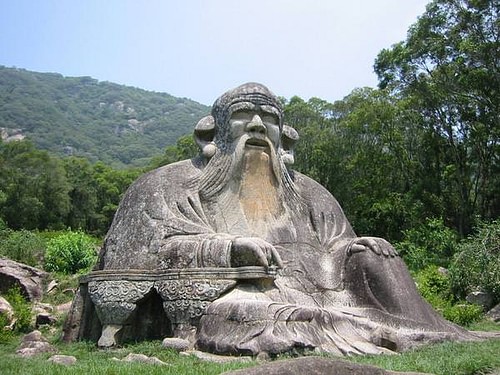
Bibliography:
- Lao Tzu. (1989). Tao Te Ching. (S. Mitchell, Trans.). New York: Harper & Row.
- Jung, C. G. (1969). The Archetypes and the Collective Unconscious. Princeton, NJ: Princeton University Press.
Further Reading:
- “The Secret of the Golden Flower: A Chinese Book of Life” by Richard Wilhelm and Carl Jung
- “The Tao of Psychology: Synchronicity and the Self” by Jean Shinoda Bolen
- “The Tao of Physics: An Exploration of the Parallels Between Modern Physics and Eastern Mysticism” by Fritjof Capra
- Read More Depth Psychology Articles:Taproot Therapy Collective PodcastMystics and Gurus



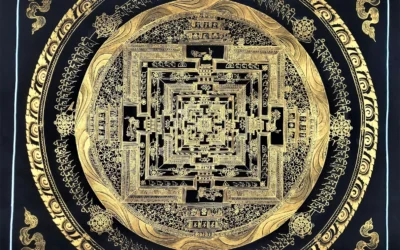
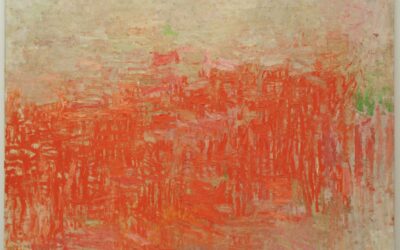
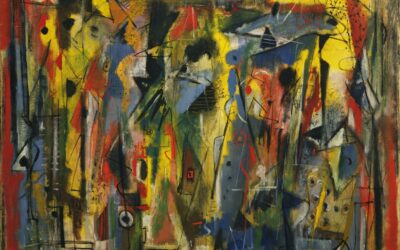


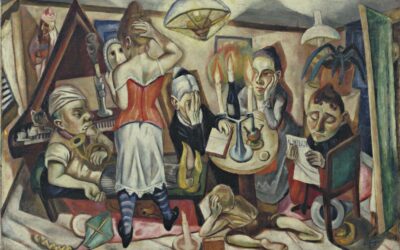

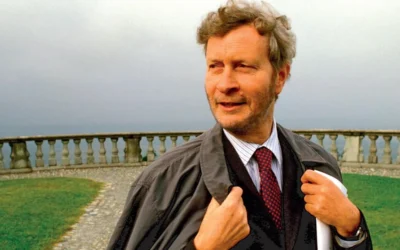
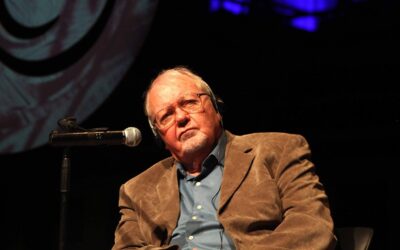
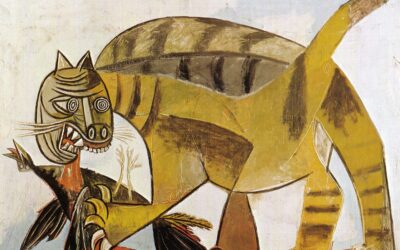
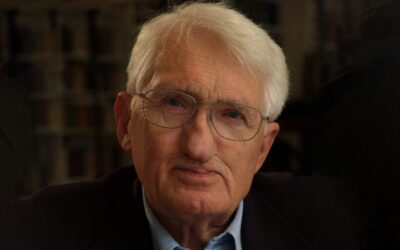
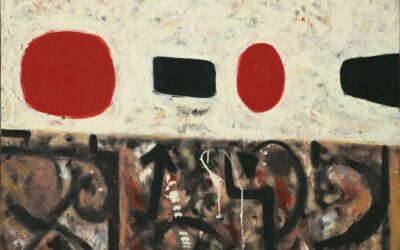
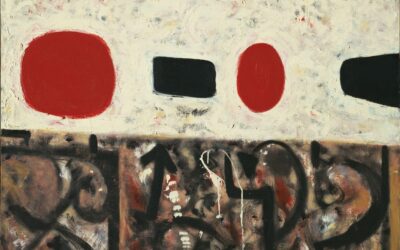
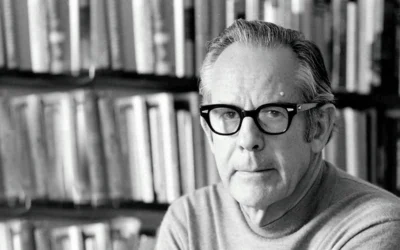
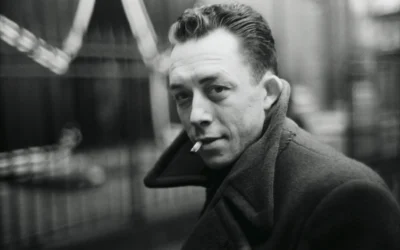
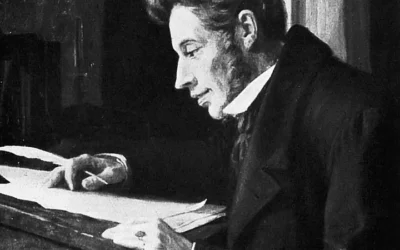
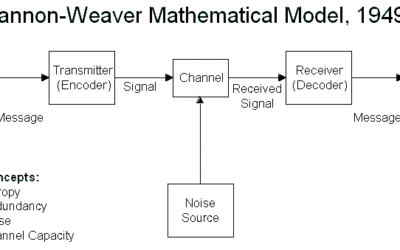
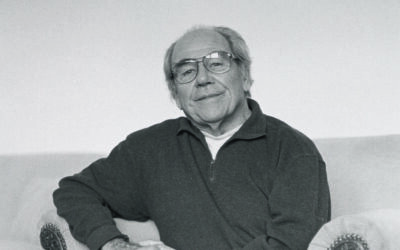
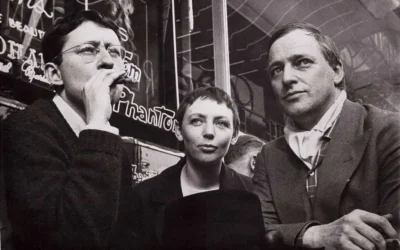
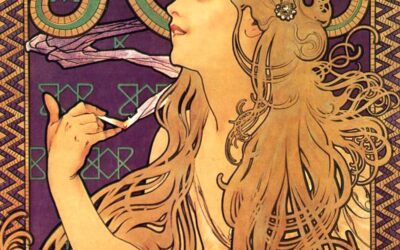
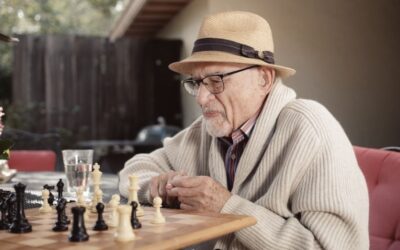

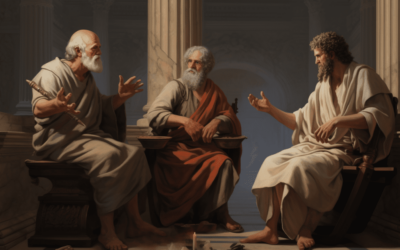
0 Comments